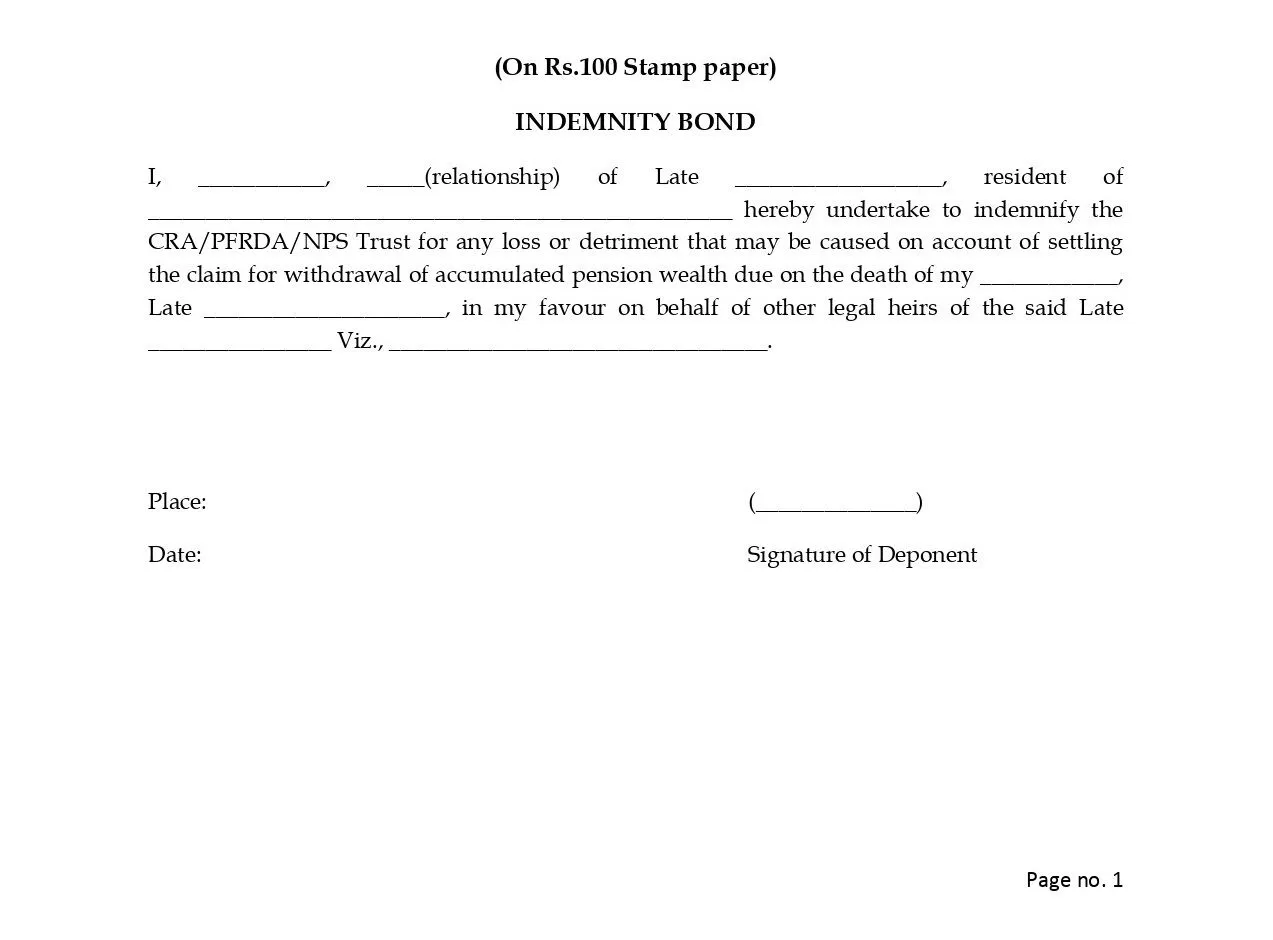Indemnity Bond: Understanding Its Importance, Characteristics, and Benefits
Indemnity bonds are a crucial financial tool that guarantees compensation to the bond’s owner in the event of a covered loss. But what exactly are indemnity bonds, and why are they so important? Let’s dive into the world of indemnity bonds to understand their significance, characteristics, and benefits.
What is an Indemnity Bond?
An indemnity bond is a type of surety bond that ensures financial compensation to the bondholder if a specific event occurs. For instance, if a borrower fails to repay a loan as per the agreement, the lender is protected by the bond. Essentially, if someone breaches the terms of a contract, their business and personal assets can be liquidated to pay the debt.
How Does an Indemnity Bond Work?
The terms of an indemnity bond are non-negotiable. The bond is only accepted if it is signed by all parties involved. The bond stipulates that the contractor must repay the surety for any money paid out on a claim. For example, if a surety company has to pay another contractor to complete a project, the bonded contractor must reimburse those costs. Failure to comply can result in the surety firm suing the contractor.
Why Do You Need Indemnity Bonds?
Property and Business Transactions
Indemnity bonds are often required in various transactions, such as purchasing property, businesses, or shares of stock. They provide a safety net for all parties involved, ensuring that financial losses are covered if something goes wrong.
Government Indemnification Programs
Government programs may also require indemnity bonds to protect against potential losses. These bonds ensure that the government is compensated if the terms of the agreement are not met.
Contractor’s License
Obtaining a contractor’s license often necessitates an indemnity bond. This bond protects the contractor, the business, and the state bond-issuing body. It ensures that projects are completed professionally and ethically.
Borrowing Money or Transferring Property
Indemnity bonds are commonly used in situations involving the borrowing of money or the transfer of property. If the contract terms are breached, the surety bond compensates all parties involved, covering any damages incurred.
Employer-Employee Agreements
Employers may use indemnity bonds to guarantee an employee’s continued service for a specific period. If the employee quits before the contract ends, they are obligated to pay damages.
Lost Share Certificates
If someone loses their share certificates, they can create an indemnity bond. This bond certifies the loss and requests a replacement, covering all fees and expenses related to issuing the new certificate.
Modifying Personal Information
Schools or businesses may require an indemnity bond to modify a student’s basic information, such as their name or address. This bond covers any potential damages resulting from the change.

Characteristics of Indemnity Bonds
Mutual Trust
Indemnity bonds are based on mutual trust between the parties involved. This trust serves as a framework for future interactions.
Specific Compensation
The bond only compensates for losses directly related to the occurrences listed in the contract. The promisee’s responsibility is limited to these specific events.
Legal Compliance
The bond’s conditions must comply with applicable laws and hold up in a court of law. This ensures that the bond is legally enforceable.
Benefits of Indemnity Bonds
Financial Protection
Indemnity bonds, also known as surety bonds, cover financial losses. They safeguard the obligor against financial loss if the principal does not fulfill its contractual duties.
Customizable Terms
The terms of the indemnity bond can be modified to account for any foreseeable loss. This ensures that both parties understand the terms of payment in the event of a dispute.
Coverage of Criminal Damages
These bonds cover all damages incurred due to criminal behavior, providing an additional layer of protection.
Principal Responsibility
Principals who sign indemnity agreements commit to bearing all costs associated with bond claims. This means they are responsible for all fees, not the surety.
Assurance in Trade
Without a payment assurance system, trade and other business activities cannot occur. Indemnity bonds provide this assurance, ensuring that the guarantor protects the debt if the debtor defaults.
Conclusion
Indemnity bonds play a vital role in various financial and business transactions. They provide a safety net, ensuring that all parties are protected against potential losses. Whether you are a contractor, an employer, or someone involved in property transactions, understanding the importance, characteristics, and benefits of indemnity bonds can help you navigate these processes more effectively. So, the next time you find yourself in a situation that requires an indemnity bond, you’ll know exactly why it’s essential and how it can protect you.

Got any questions or point of view on our article? We would love to hear from you.
Write to our Editor-in-Chief Rajat Piplewar at rajat@bhume.in
